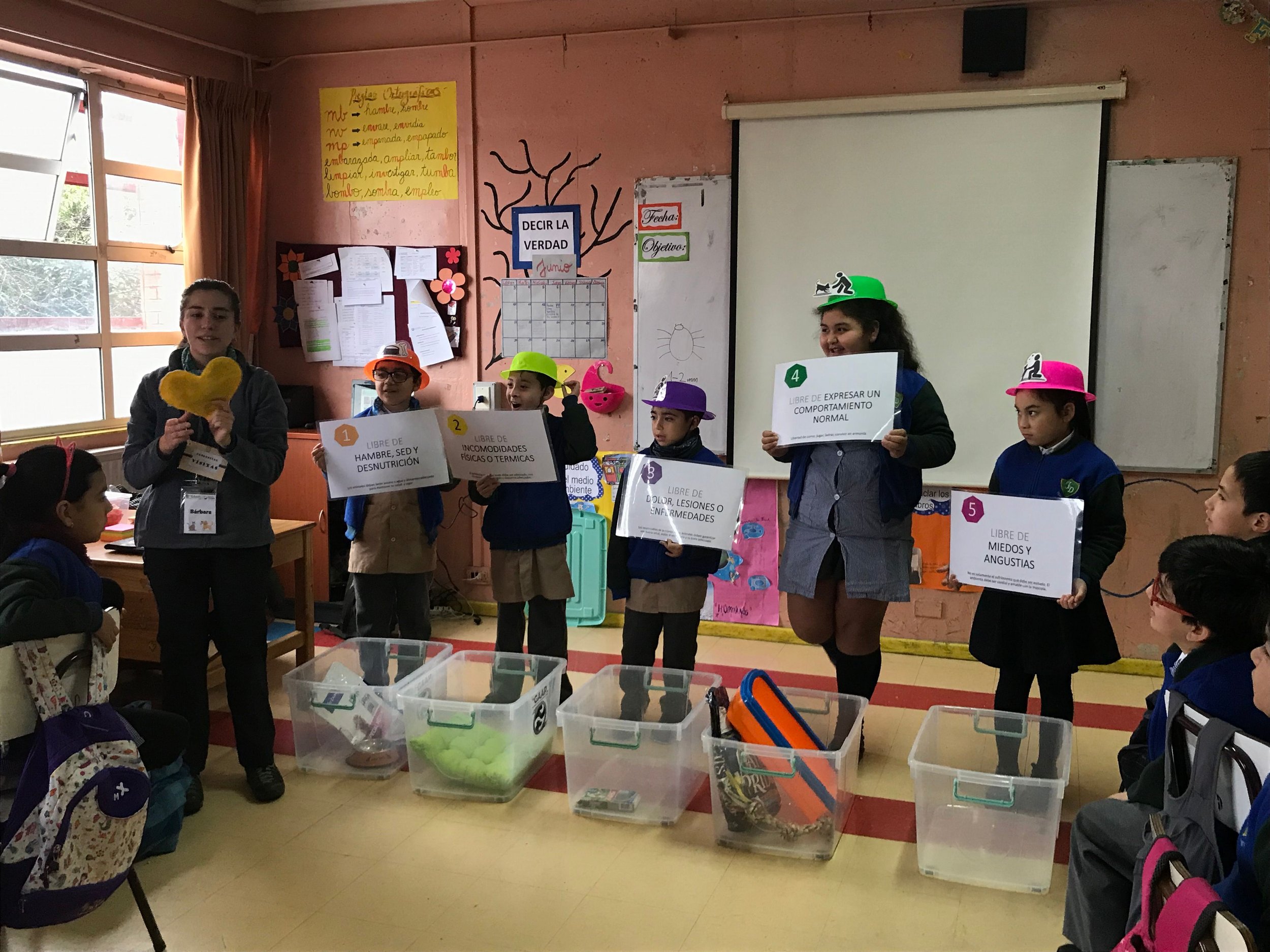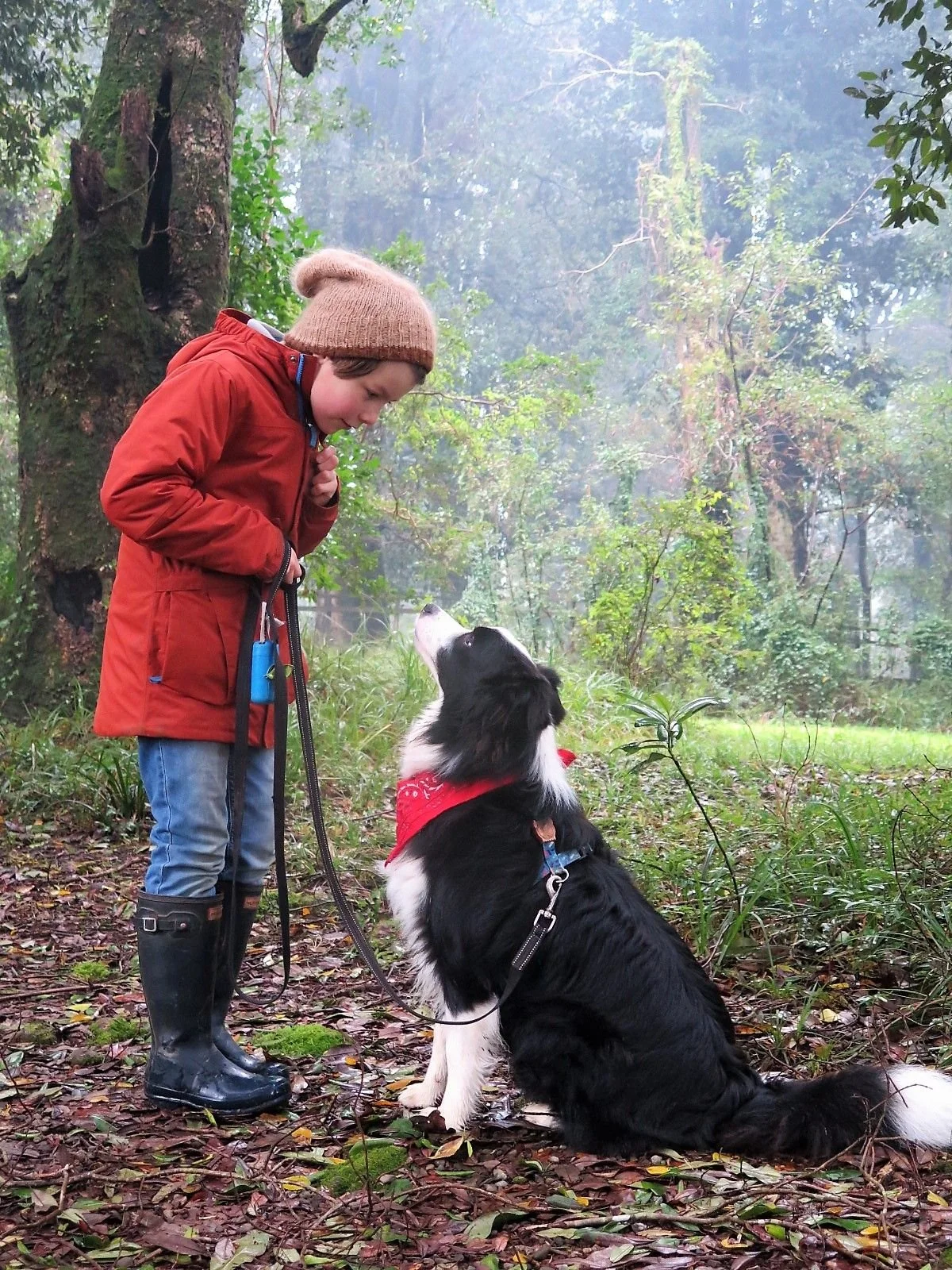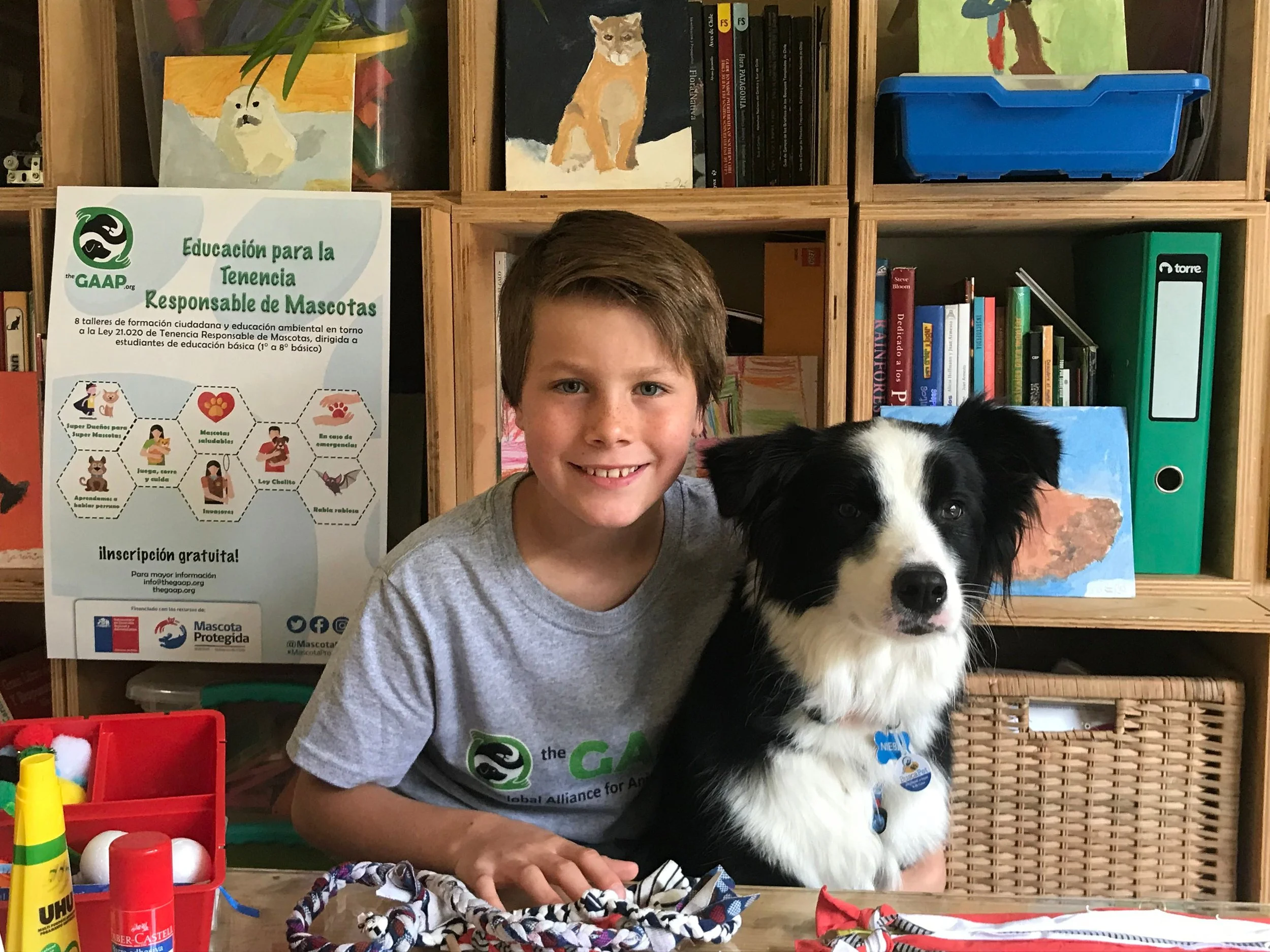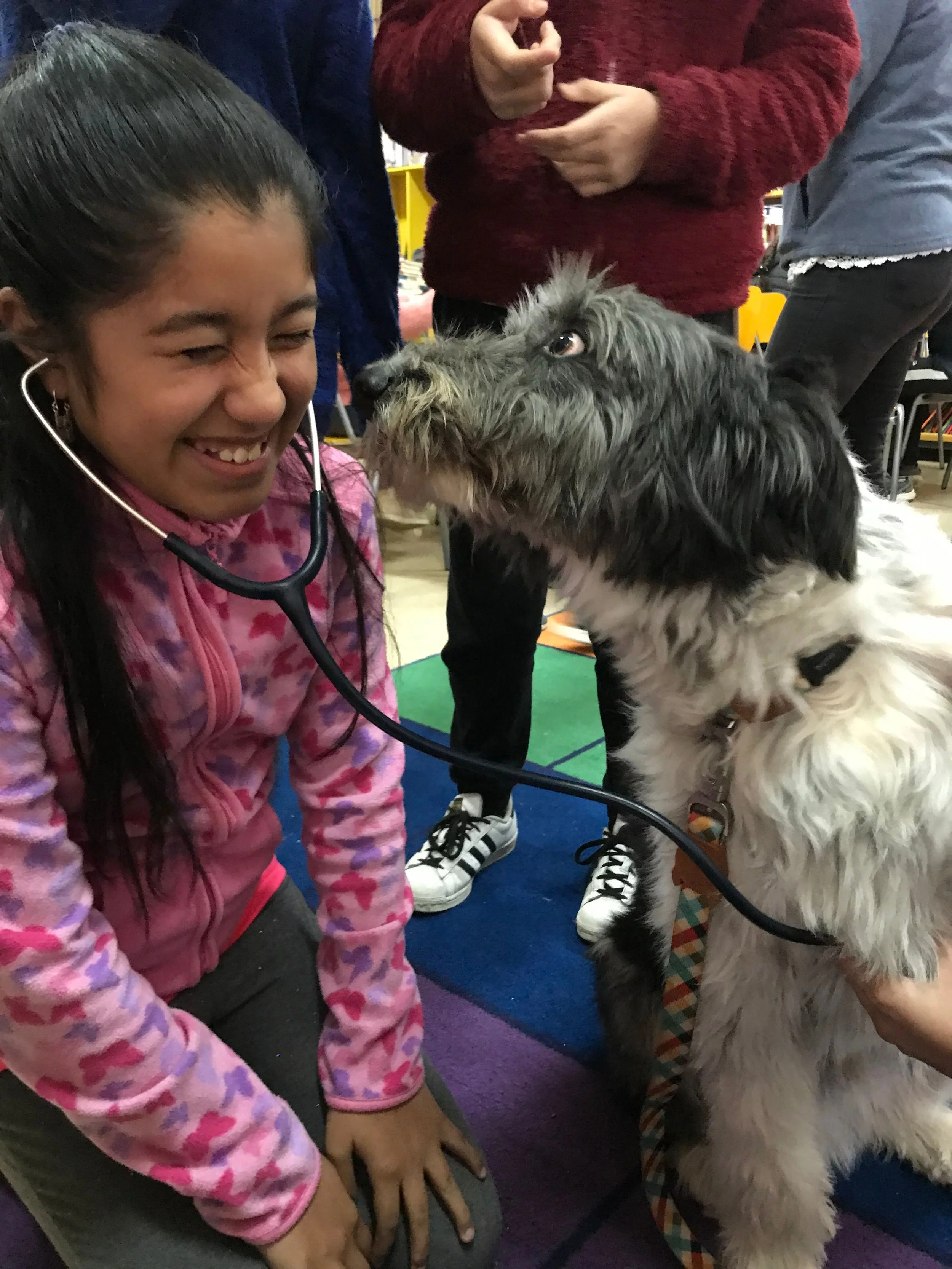
Healthy Pet’s Education Program
Boilerplate Statement
Only since 2018 has the abuse or neglect of pets been illegal in Chile
Without a larger cultural shift in what people understand to be responsible pet ownership, the relatively new law won’t have much impact on animal well-being throughout the country. In Chile, having a pet roam the streets during the day and (hopefully) return home by night is common. Misconceptions about sterilization keep people from taking necessary steps to reduce issues that come from overpopulation, and lack of knowledge of other preventive health measures contributes to lower quality of life for many dogs and cats.
“I think she was really sad… I didn’t really value her, I just left her lying around in the backyard.” – says Sofía (age 11) about her dog Amanda.
This quote is from one of the thousands of kids who have participated in our Healthy Pets program. Sofía shared this realization in one of the workshops after learning about proper ways to care for her dog. Read what Sofía decided to do with her new understanding of what it means to be a responsible pet owner!
This quote is from one of the thousands of kids who have participated in our Healthy Pets program. Sofía shared this realization in one of the workshops after learning about proper ways to care for her dog. Read what Sofía decided to do with her new understanding of what it means to be a responsible pet owner!
Need to Sofia story link, I didn’t see Sofia story
Our solution- explanation of the project and how it addresses the problem we introduced above. It will be in paragraph format, about 500 to 1,00 words and should include:
Very brief context/description
What makes our approach unique?
Our vision/goal/dream
Our Healthy Pets education program focuses on engaging community members (with a special focus on kids!) in becoming an active part of responsibly caring for their pets. The program consists of eight interactive workshops (available both in-person and virtually) with accompanying videos that connect the content to the local reality. By discussing topics such as the five basic freedoms of animals, how to “speak dog” (or read a dog’s body language to understand what they are trying to communicate), and rabies prevention, program participants gain a new level of awareness of their pets’ needs and their role in meeting them. Our one health approach emphasizes the impact of our pet’s health on our own, as well as on the environment and wildlife surrounding us. By continuing to grow this program throughout different communities in Chile, we hope to contribute to the cultural shift of increased accountability for pets’ well-being and a closer connection between animals and their caretakers. For us, a cultural shift is the only way to create sustainable change in how animals are treated on a larger scale, and we know that educating kids is the best opportunity to bring positive changes into action!









